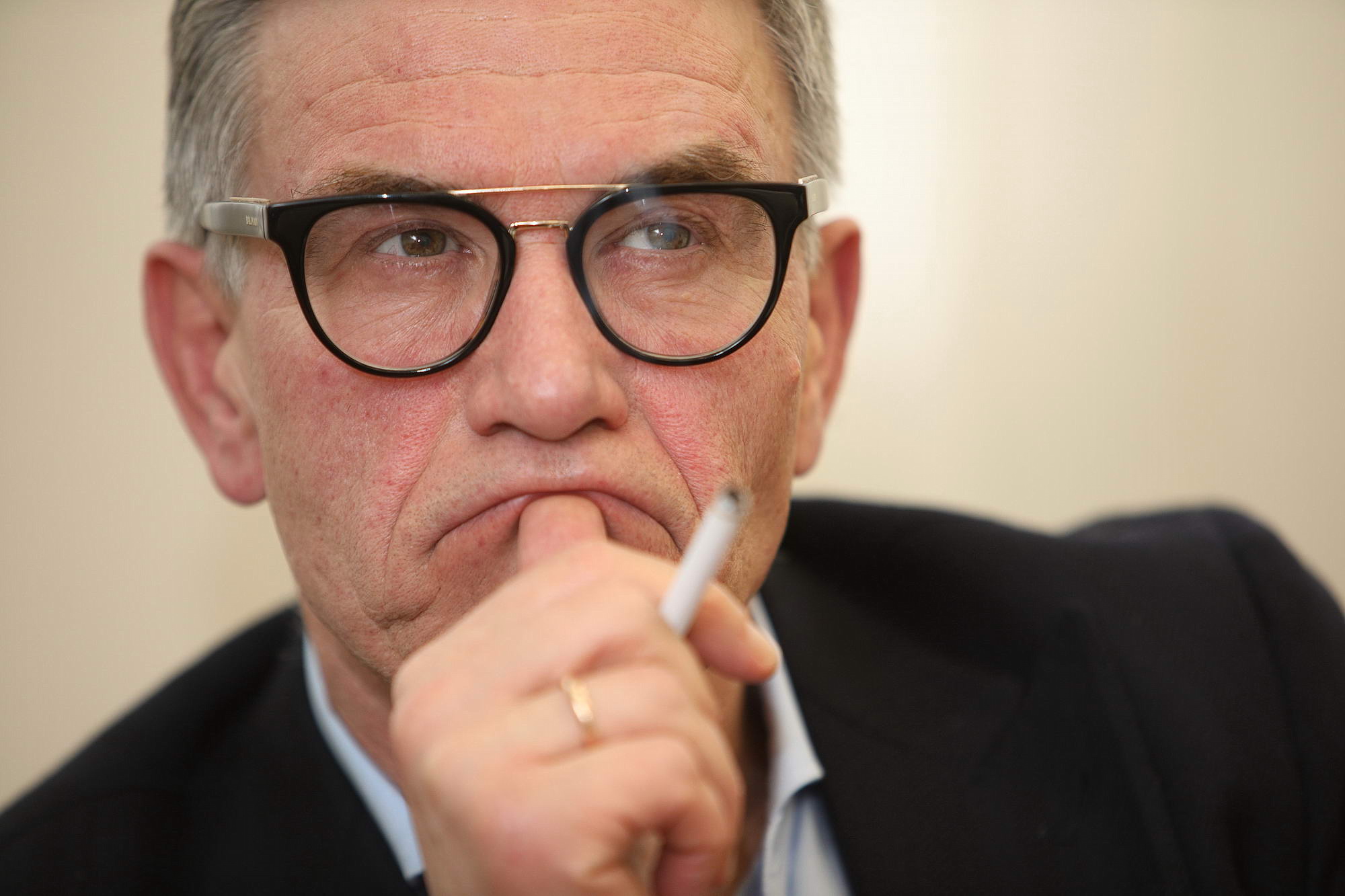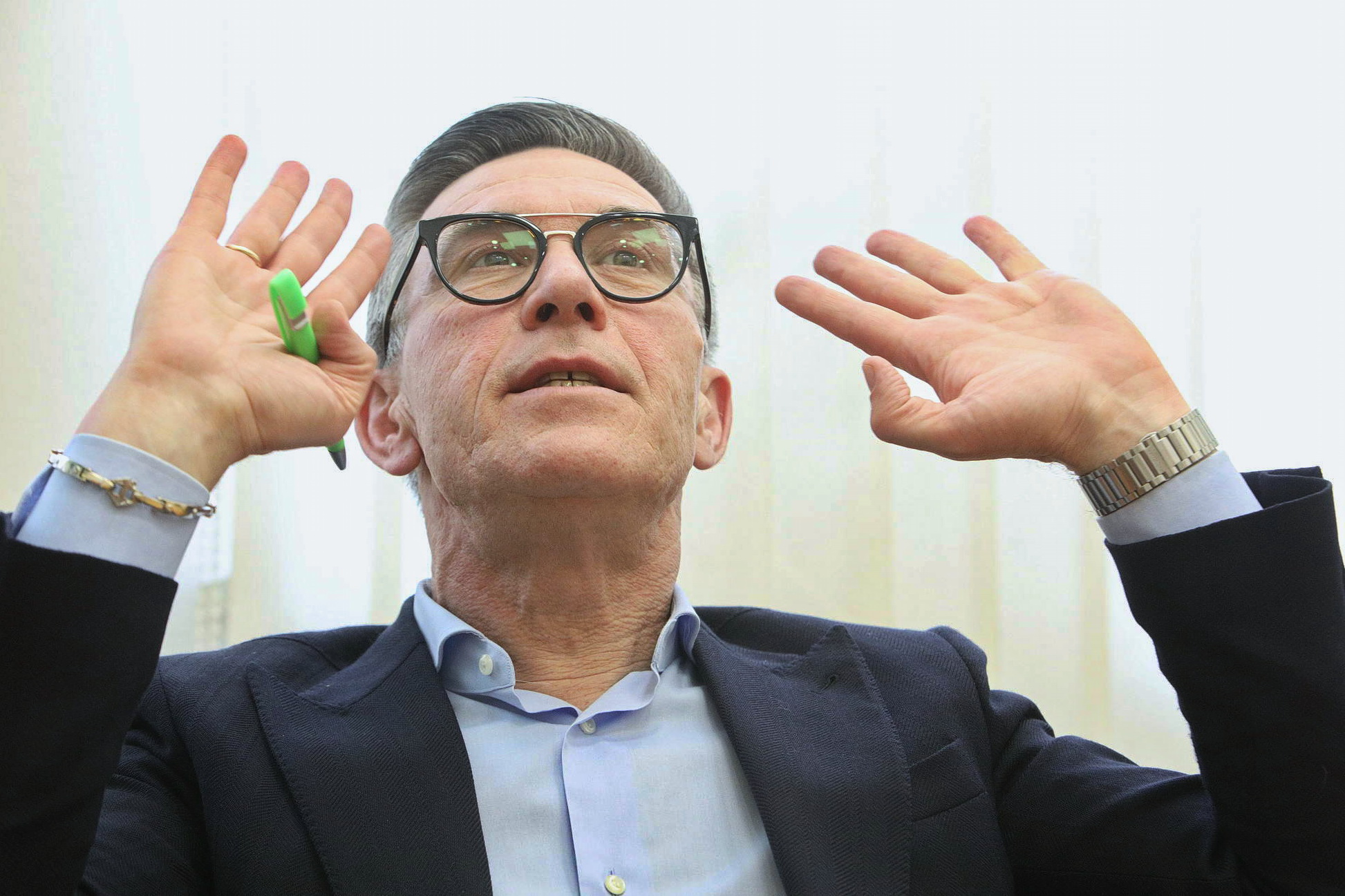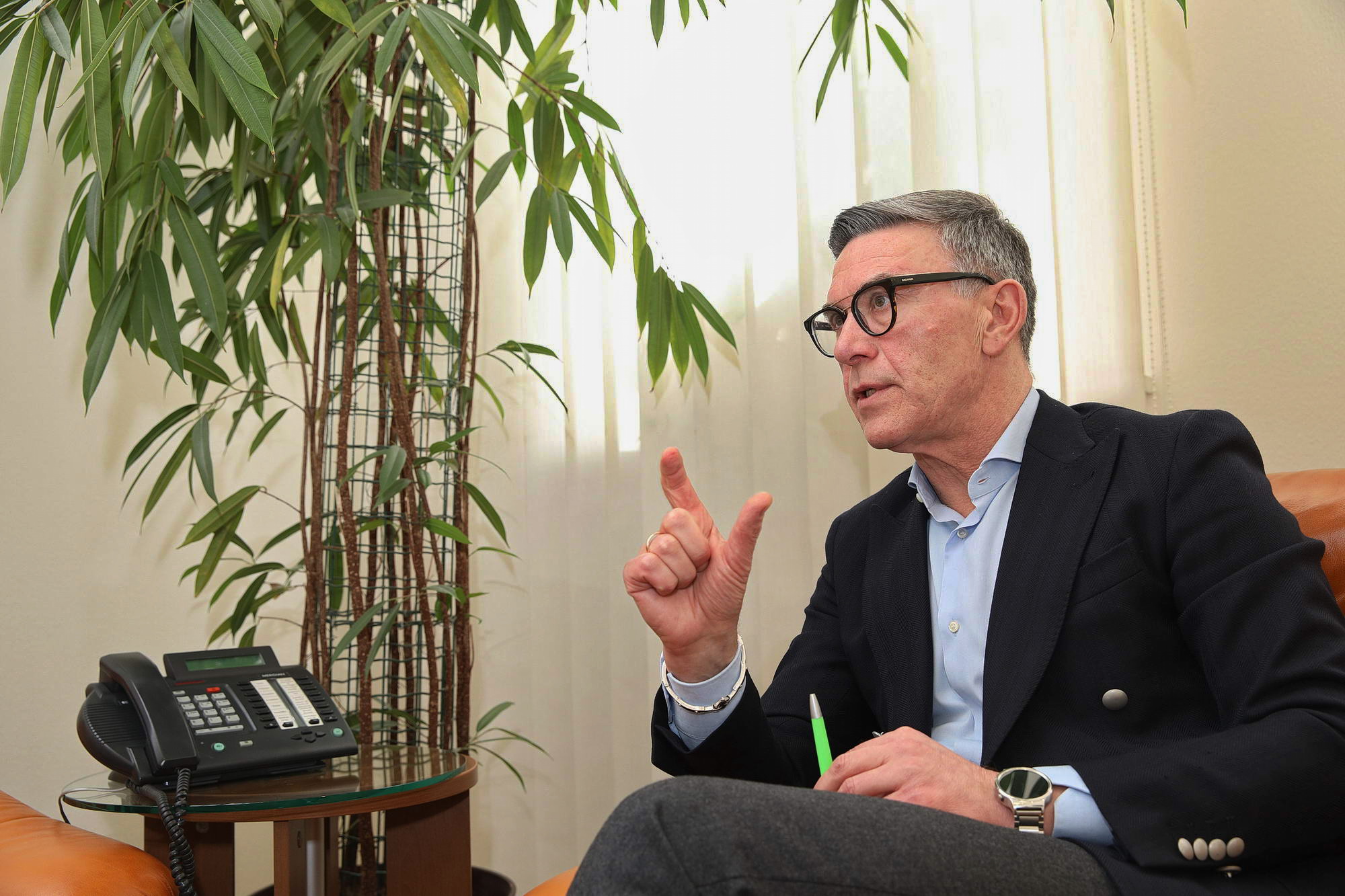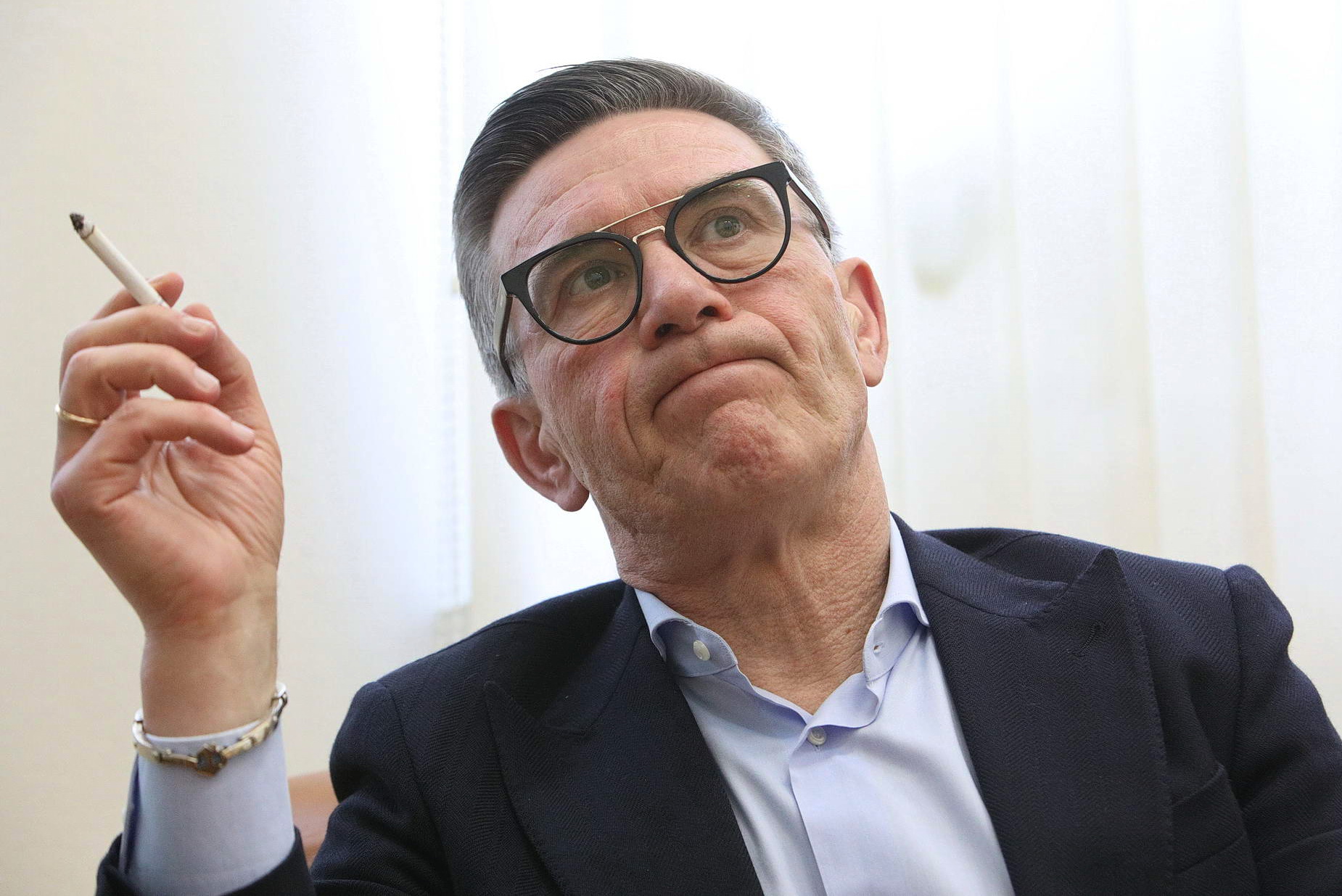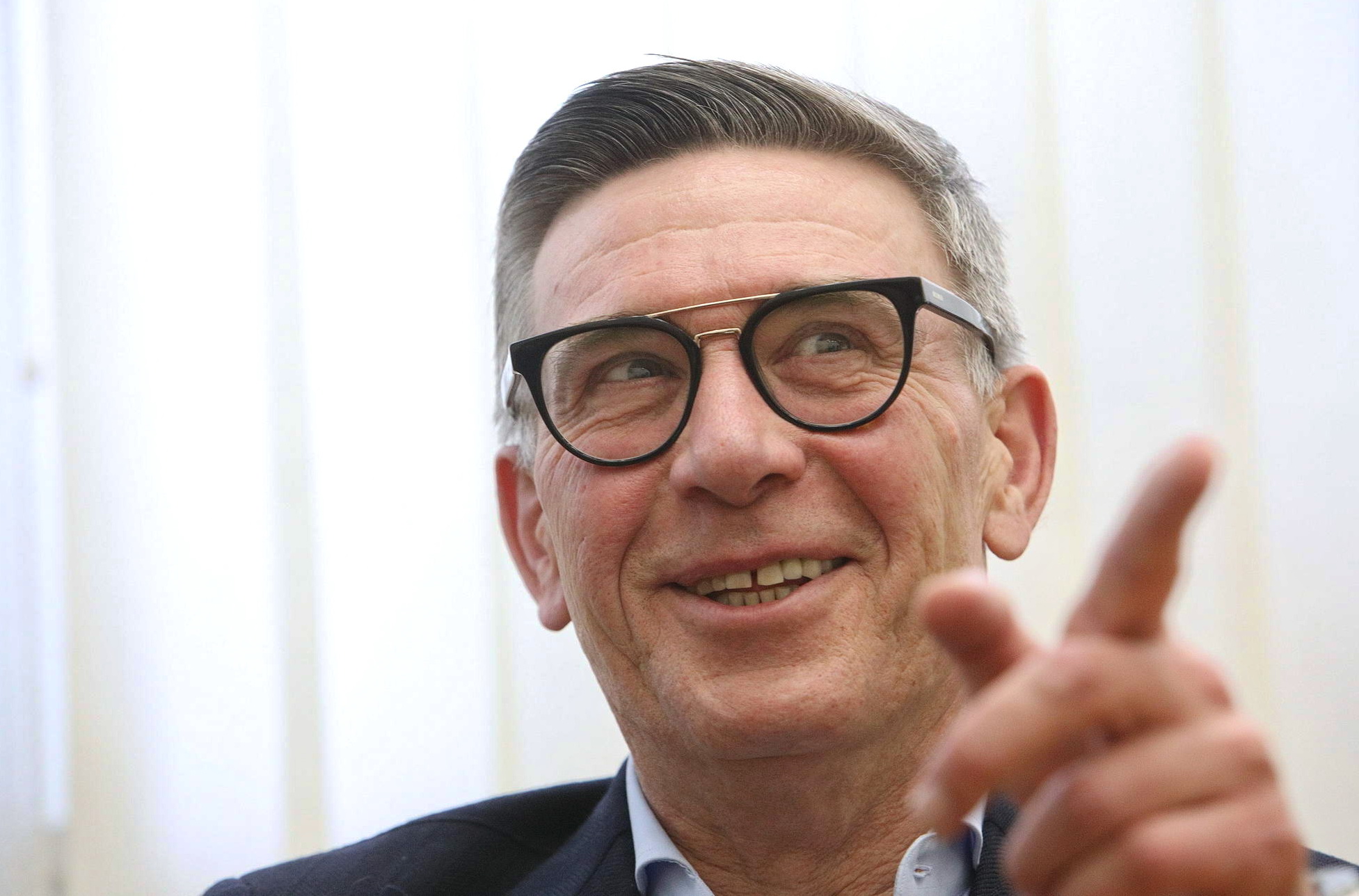Back in the 1990s, when mobile phones were a rare luxury, Ukrtelecom was powerful. Then a state-owned company, it was the sole provider of fixed-line telephone services throughout Ukraine.
It still is, but mobile phones are no longer a luxury while fixed-line telephone services are no longer a necessity.
So Ukrtelecom, a 24,000-employee goliath burdened with old technology, is going to have to change.
At least that’s what Yuriy Kurmaz thinks. Kurmaz, 57, the CEO of Ukrtelecom, took charge of the company once Ukrainian billionaire oligarch Rinat Akhmetov bought Ukrtelecom in 2013, paying reportedly $1 billion for the firm that owned the asset, ESU. (ESU had privatized Ukrtelecom in 2011, writing a check for $1.3 billion for Ukraine’s telecom giant.)
Kurmaz came from another company that had belonged to Akhmetov — the mobile phone company formerly known as life;). That’s been sold to a Turkish company and rebranded as lifecell.
His job is to bridge the tech gap and help Ukrtelecom regain its powerful position.
Kurmaz told the Kyiv Post he has been working hard for the last four years to turn the classic fixed-line phone operator into a modern information and communication technology provider.
“Ukrtelecom is not perceived as a modern telecoms provider. And that’s Ukrtelecom’s fault,” Kurmaz said. “We should, and we will, fight for the status that we want Ukrtelecom to have on the market.”

Ukrtelecom CEO Yuriy Kurmaz (R) talks to journalists at a news conference in Kyi on March 22, 2017. Yuriy Kurmaz, 57, the CEO of Ukrtelecom, took charge of the company once Ukrainian billionaire oligarch Rinat Akhmetov bought Ukrtelecom in 2013, paying reportedly $1 billion for the firm that owned the asset, ESU. (Oleh Tereshchenko)
Unenviable position
The “national effect” of Ukrtelecom already being present in most Ukrainian population centers is a firm foundation to grow “if used sensibly,” according to Kurmaz. The company’s market position when he took charge was “unenviable, dim, and quite flimsy,” he said.
Four years later, it remains so.
“The process of changing — as well as fulfilling my ambitions in the position of Ukrtelecom CEO — has stretched out in time for reasons that don’t depend on me,” Kurmaz said.
Burdened with obsolete equipment, Kurmaz says, many employees aren’t interested in learning new skills.
“They’re living in a paradigm in which they have to do things that there will be no more demand for in five years,” he said.
Not a monopoly
Once a monopoly in the communications sector, Ukrtelecom now has little impact on the industry. Digital voice communication is going mobile and more internet-based via Skype and other phone and messaging apps, which have gradually left fixed-line communications in the past.
Ukrtelecom has been left with 11 percent of the Ukrainian market for voice communications, and only 7 percent of the revenues from the telecoms market.
“You can’t really call it a monopoly anymore, can you?” Kurmaz said.
Phone lines to internet
As fixed-line telephones withered, Ukrtelecom became an internet provider. Because of the ubiquitousness of its phone cable network in Ukraine, it currently serves the biggest number of internet users in the country, with younger companies Kyivstar and Volia chasing behind.
And as the number of Ukrtelecom’s internet users grows, now up to 1.5 million people, its fixed-line subscriber base continues to shrink.
Most fixed-line subscribers are from rural areas. Kurmaz wants to use this old network to expand internet access to regions that no other company serves. It has provided web access to 1,000 more settlements since Kurmaz was appointed, now serving a total of 2,200 cities and smaller towns. “The scale of our network is our biggest advantage,” Kurmaz said.
To win over clients, Ukrtelecom offers a tempting range of internet-based services. Its key product is internet television — which offers the user the ability to pause a live broadcast, and watch TV programs on demand.
All the same, despite being the provider with the largest subscriber base, 70 percent of the entire internet market belongs to smaller, local firms, which are faster and more modern.
“We’ve got to get rid of the obsolete telecom’s approach first, in order to compete with them,” Kurmaz said.
Unfair competition
But there’s another problem. The smaller providers — Kurmaz reckons there are around 4,500 of them in Ukraine — mostly compete unfairly.
“One shouldn’t turn a blind eye to the fact that the majority of them are operating illegally, evading taxes and falling short of standards,” Kurmaz said. “There should be regulations, there should be demands. Otherwise, it’s unfair.”
Another problem in the Ukrainian telecoms industry, Kurmaz thinks, is that market players are too fond of resorting to slashing rates below costs to compete with each other. The dumping, which starves companies of revenues, prevents the sector’s development, he said.
A tariff plan offering two gigabytes of data and unlimited calls inside a carrier’s network costs about $2 a month in Ukraine. An equivalent package in the West would cost up to $30 per month.
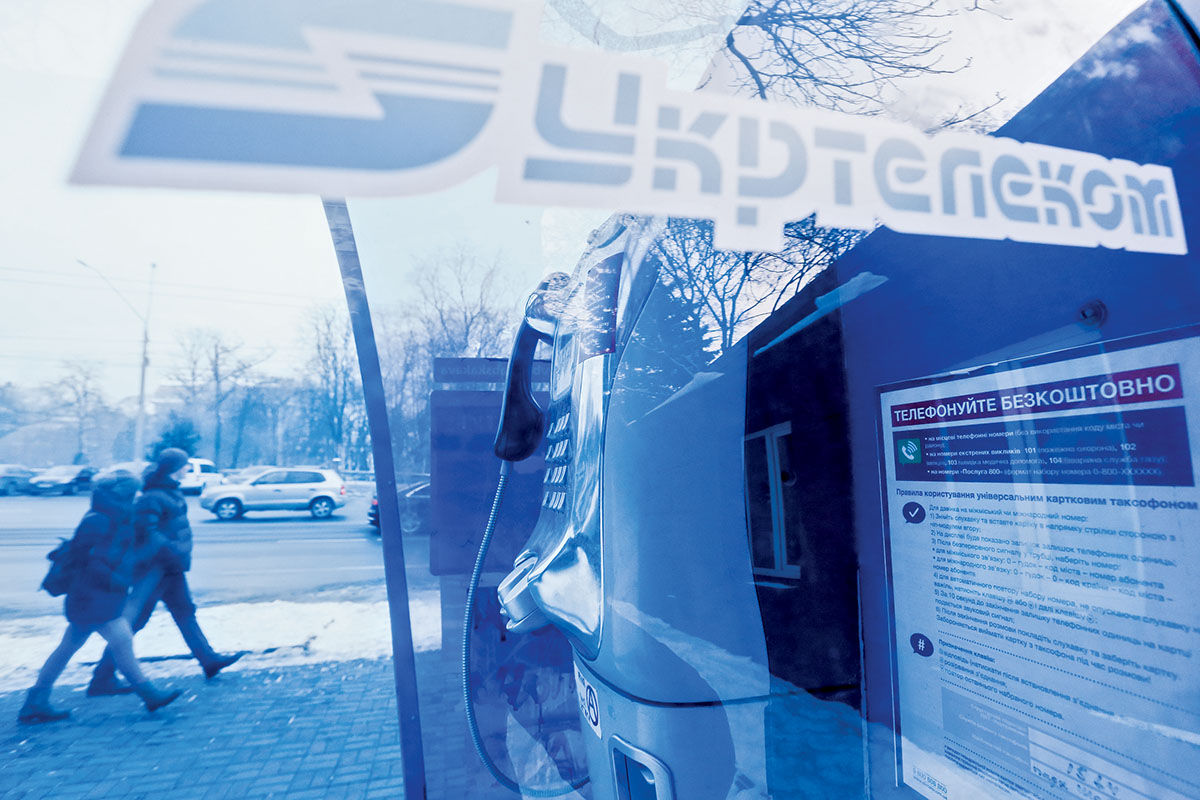
People pass by an Ukrtelecom payphone in Kyiv. Ukrtelecom has always been the sole provider of fixed-line telephone services throughout Ukraine. (Kostyantyn Chernichkin)
Large-scale theft
While the company has the opportunity to leverage its physical infrastructure to offer modern services, theft is a drawback in using cables and wires to send signals, rather than the ether.
The company loses Hr 350 million a year because of the thieves, who cut cables, strip the copper from their insides and sell it.
The government and the law enforcement agencies do help handle the situation, “sentencing culprits caught red-handed,” but it should pay much closer attention to the problem, Kurmaz said.
Cable ductwork, optical carriers, copper wire infrastructure — all are used by government authorities as well as big banks and retailers. And so, according to Kurmaz, this is not just Ukrtelecom’s problem.
Kurmaz suggests tougher regulations on Ukraine’s nonferrous metal industry. Meanwhile, the company is replacing its copper wires with optical fibers, which are less attractive to thieves; or is switching to wireless networks through its daughter phone carrier 3Mob. (Ukrtelecom almost sold 3Mob to Vodafone Ukraine; meanwhile, it loses Hr 300 million a year.)
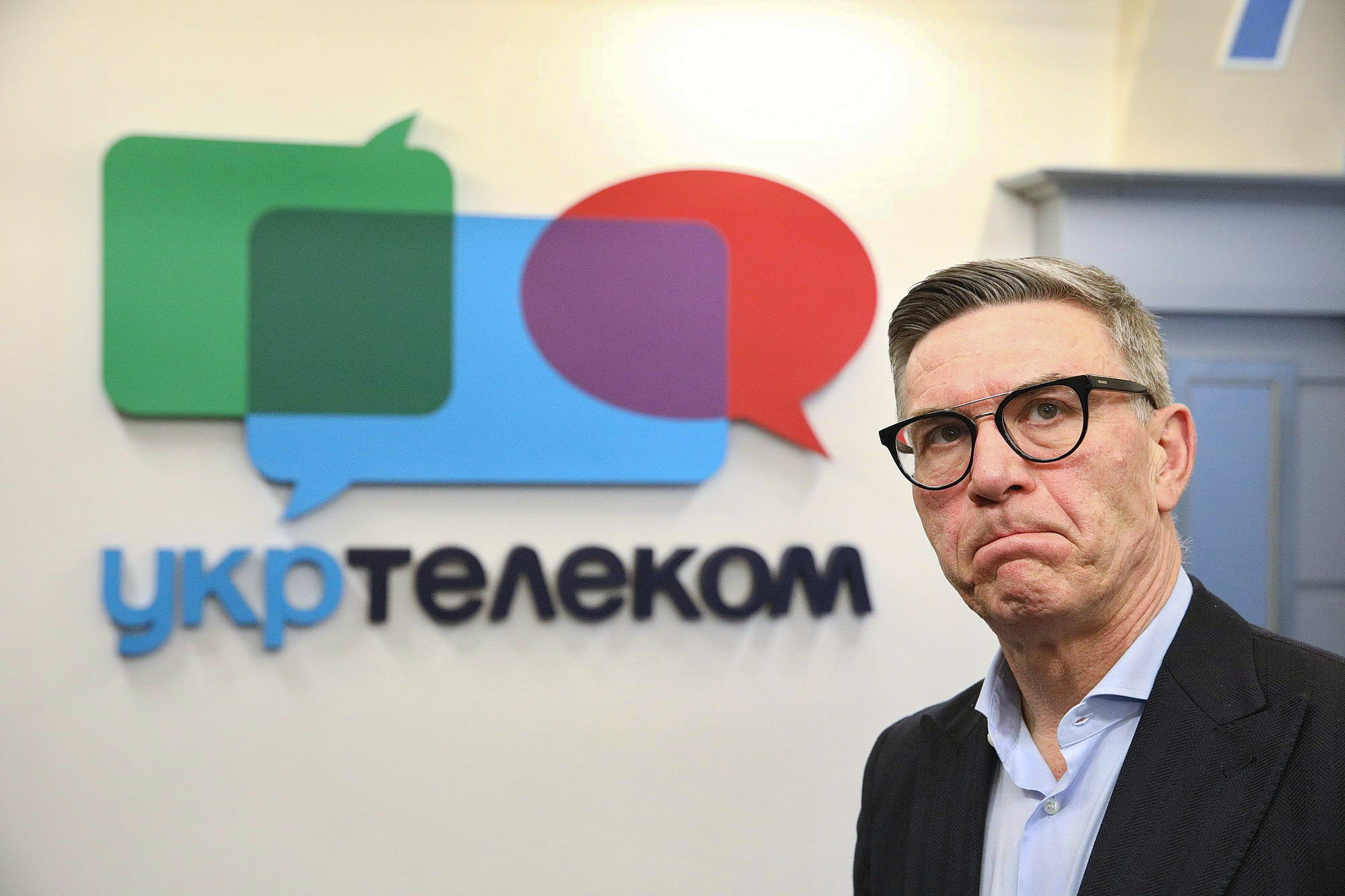
Ukrtelecom CEO Yuriy Kurmaz thinks that telecom market players are too fond of resorting to slashing rates below costs to compete with each other. The dumping, which starves companies of revenues, prevents the sector’s development, he said. (Volodymyr Petrov)
Legal troubles
Ukraine’s top oligarch Akhmetov owns 93 percent of Ukrtelecom shares through his System Capital Management holding, but his ownership is currently being challenged in the courts. SCM is accused of failing to honor more than 50 of the obligations it took on when it bought Ukrtelecom.
The Kyiv Economic Court ruled in November that Ukrtelecom should be re-nationalized. But Akhmetov appealed. The court’s ruling has been suspended.
Kurmaz knows Akhmetov, but he says they haven’t sat down to discuss the situation. He’s trying to ignore the legal issues. “A strategy has to be mapped out, despite these, shall we say, extraordinary events around Ukrtelecom,” he said. “Even if Ukrtelecom becomes state-owned and if someone else reaps a harvest, then everyone will still know that this harvest was brought in by me and my team.”
The Kyiv Post’s technology coverage is sponsored by Ciklum and NIX Solutions. The content is independent of the donors.
